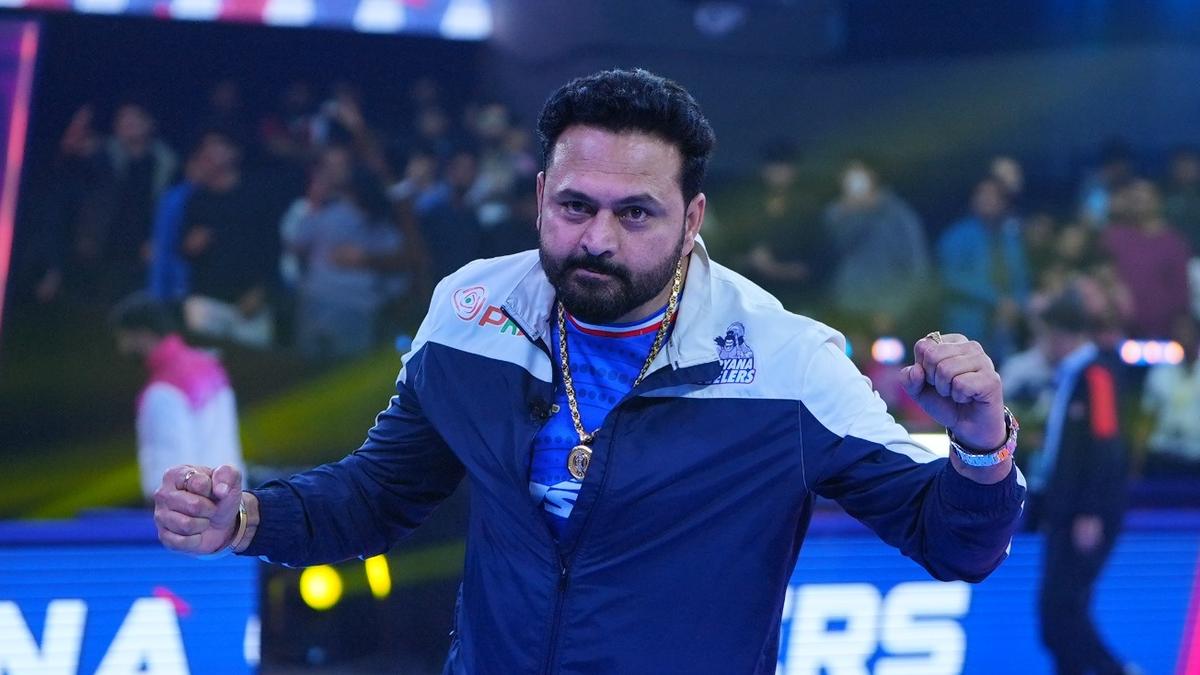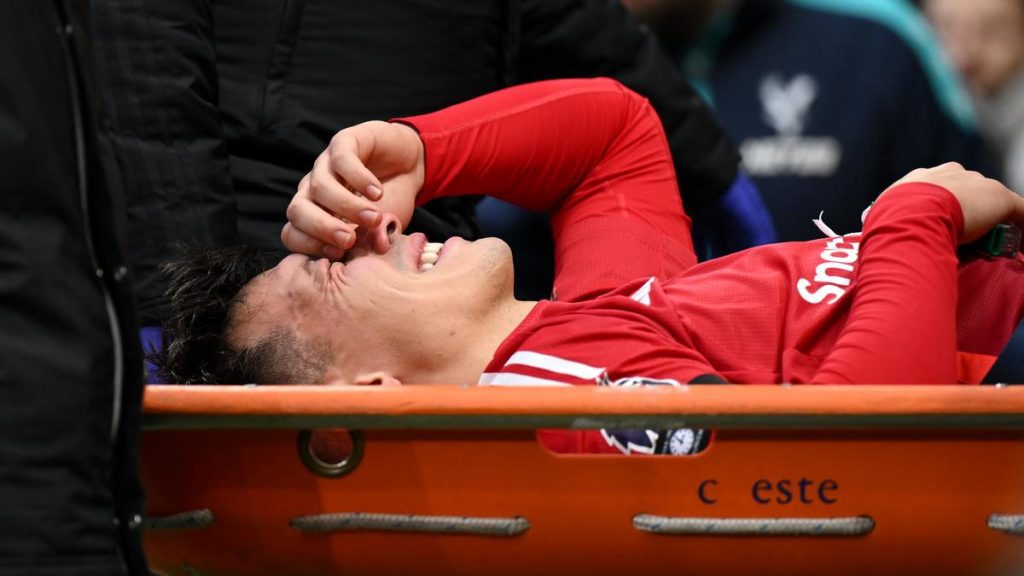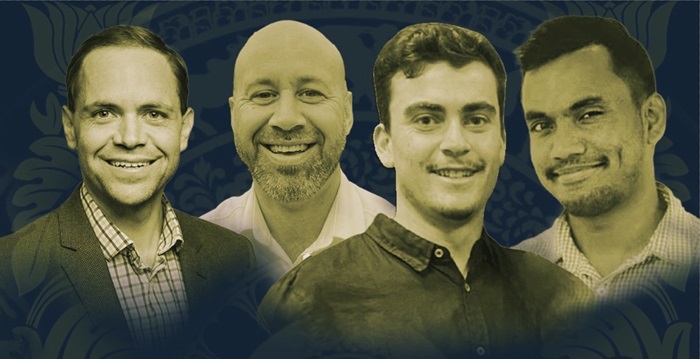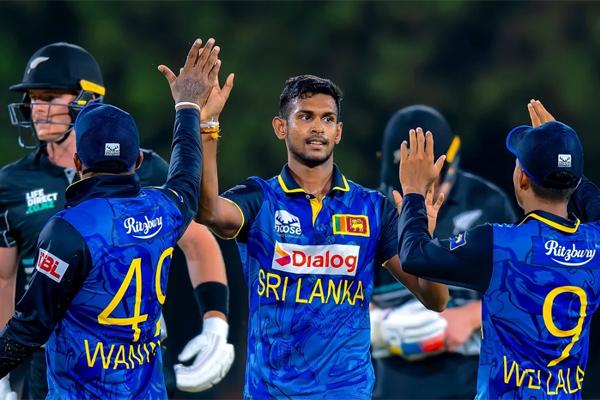Manpreet Singh’s kabaddi ka nasha spurs his PKL title ambitions with Haryana Steelers


Manpreet Singh’s kabaddi ka nasha spurs his PKL title ambitions with Haryana Steelers
Haryana Steelers coach Manpreet Singh is many things. He is competitive, loud, passionate and boisterous. As a lifelong student of the game of kabaddi, he believes in destiny’s role in being able to succeed in the sport, but superstitious is not an adjective he associates with himself.
That said, when you make three finals and don’t win, a little blind faith can be comforting.
“Someone told my wife that the more gold I wear, the more golden trophies I’ll get. So I took all the gold I could find in my house and wore it to ensure that side is also sorted,” Manpreet told Sportstar ahead of the playoffs of the Pro Kabaddi League’s 11th season.
True to word, the former Indian all rounder has been blinged out this season. He sports a massive gold plated watch on one hand and a golden kada (a thick metal bangle worn by Sikhs) on the other, along with a few chunky rings. The most defining addition is the fat golden chain around his neck.
As it stands, the prayers have paid off. Almost.
The Steelers topped the league phase with 84 points in 22 games. There were no draws in Haryana’s ledger this season and the side finished the preliminary stages with an astounding points difference of 112. Their dominance earned them a direct spot in the semifinal – the top two teams take one spot in each semifinal – where they snuck past UP Yoddhas with a close 28-25 victory.
That Yoddhas win made the big man sweat. The game seesawed between the two sides right until the dying minutes of the game. Manpreet, down with a cold and fever, was uncharacteristically quiet throughout the game, but those last few minutes shot up his blood pressure too. In the end, he and his boys now stand a foot away from the PKL trophy with a young and audacious Patna Pirates – Manpreet’s former franchise with whom he won this league as a player – blocking their way.
But Manpreet is used to obstacles. If you had left it to his family, Manpreet the kabaddi player would have never taken shape and a man worth 12 international gold medals for the nation would have potentially been a farmer or a contractor.
“I didn’t get the privilege of playing this game easily. I had to fight a lot to earn the right to play it. My family did not support me at all early on. My grandfather, Sardar Karnail Singh, was not just the all-powerful patriarch of my family but was a very revered figure in the community. He did not want me to play kabaddi,” Manpreet narrated.
“My father had five brothers and I was the youngest of the 19 kids in the house… nine boys and the rest were girls. If it was only my father, I would still be able to convince him but my uncles and aunts all thought, if their kids had to partake in duties in the house and work on the fields, why should I be excused? I wanted to play but they all stopped me. They were worried I’d injure myself and add to the family’s load too,” he said.
“To be fair to them, this happened as well. When I was in class six, I used to be a defender. I was a corner defender. Someone kicked me once under my chin and I broke a few teeth and that was it for my family. It had to be a matter of stealth from there,” he added.
Manpreet was a healthy sardar kid with his hair in the top knot. His hair would invariably catch soil when he played kabaddi and it didn’t take long for folks at home to find out what he’d been up to. Eventually, his friend made a risky suggestion, goading him to cut off his long locks. Manpreet’s desperation to play made him do it and all hell broke loose.
“I got a thrashing of a lifetime for that and for about 15-20 days, my family didn’t give me proper food. That time passed with a lot of difficulty. But nasha tha mera kabaddi ka,” Manpreet said.
An elder in the community then admonished his grandfather for the resistance, asking him to actually go see Manpreet play to understand how good he was.
“One day, he came to watch me play secretly at a local tournament. I did well that day and my grandfather eventually sent for me. When I saw him sitting there in the gathering, I thought, ‘That’s it. There ends my dream.’ My entire body began shaking in fear.”
“I didn’t get a beating though. He took out 100 rupees from his wallet, a big amount at the time, and handed it to me. I cannot tell you how happy that made me. He then found a good coach in Patiala, Sardar Sher Singh and left me in his care saying, ‘Let him play.’ I never turned back from there. Dadaji was Hitler. His word was law and my journey began there,” he said.
Naturally then, the big ambition was to be picked for the Indian team. Manpreet’s grandfather put a price on it, asking his grandson what he could give him if he managed to break through.
A then 17-year-old Manpreet promptly replied, “Bullet motorcycle.” Barely a few years later, Manpreet earned that India blazer and in came a classic black 350.
“Till date, I have that bike with me, and it’s in great condition. Only I am allowed to ride that bike, I don’t let anyone near it. I think I’ve won about 10-12 Bullets in my career. The others have all been gifted away to friends, relatives, nephews, nieces. But that one from my grandfather is still there,” he said.
Manpreet represented India for close to a decade, coming out at the other end with 12 international gold medals. In the Pro Kabaddi League, he led a young Patna Pirates outfit to its maiden title in the third edition. That stint too was fraught with struggle as Manpreet had to lose over 47 kilos to make the cut and be competitive in the league.
Stories of Manpreet’s struggles with weight are well known, particularly famous is the one where he lost 10 kg in a single night to make weight in a quadrangular tournament in 2006.
He never questioned any of it. After all, that right to play this game didn’t come easily.
After his time as a player, he began his coaching journey with Gujarat Fortunegiants which was then renamed Gujarat Giants. He took the franchise to the final in his first two seasons and the playoff in the third. His fourth year with the side saw them finish outside the knockout bracket. He soon moved to the Steelers in 2022. After a league stage finish in that season, he has led the side to two finals with a young, unheralded core and barely any star presence.
But Manpreet does have an ace up his sleeve – his star allrounder Mohammadreza Shadloui Chiyaneh, who won the league with Puneri Paltan last year beating the Steelers in the final. The Iranian has earned a feverous fan following courtesy his swagger, mat presence and jaw-dropping skills, besides some very funky hairdos over the seasons.
Manpreet sees a bit of himself in Shadloui.
“The kabaddi that we want to see today, he is a very superior product of it. Back in the day, I was a lot like him, I was perhaps a bit more aggressive. I used to bring in a lot of style in my game. Be it hairstyles, the clothes I wore or what I pulled off on the mat,” he said.
“John Abraham, MS Dhoni came later, in 1999 to 2004 I had long hair till my shoulder for a while. When I played local tournaments in Mumbai, people would call me Bobby (in reference to actor Bobby Deol). I can see all that energy and spunk in Shadloui. Whether the match is headed to a victory or defeat, his energy never diminishes,” he added.
Come Sunday, the Steelers have a chance to make a space for themselves in the sport’s history if they beat the Pirates to win the Pro Kabaddi League title. From local tournaments to World Cups, Manpreet’s nerves of steel have often single-handedly carried his teams to glory. The coach will hope the fourth time’s the charm.










